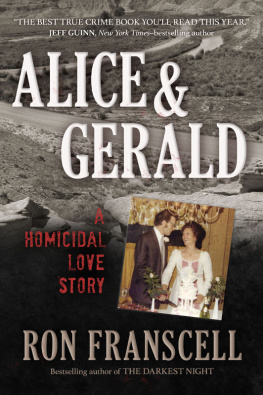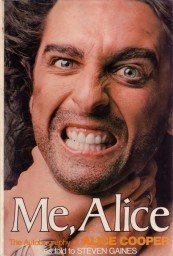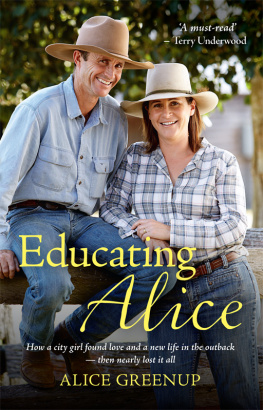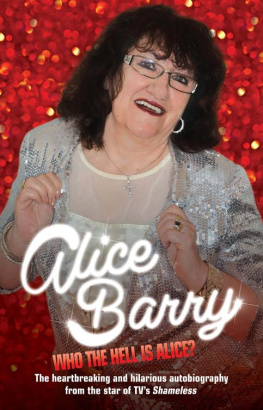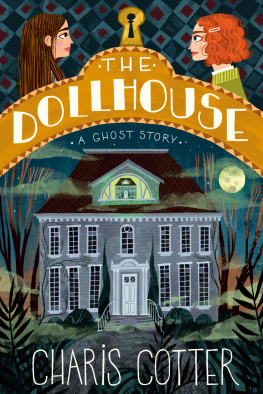
For more than two years, I immersed myself in a landscape and mindscape that were both familiar and foreign to me. I grew up in Wyoming, and it remains my heart-earth. Now I see those times and those people through the gauze of memory, and they haunt me.
The pages you've just read contain the names of dozens of people who helped me tell this bizarre story of Shakespearean proportions. I cannot repeat all of them here, but the reader must understand that each of them contributed crucial perspectives and unearthed memories that they'd just as soon have kept buried. When you read their names in this book, know that they were askedand usually answeredsome very unsettling questions. I am grateful to them all.
I logged thousands of miles, dialed hundreds of phone calls, interviewed more than a hundred people, sent countless emails, and walked every key site in this true story. Along the way, I had many true guides, including Glen Berghaus, Dr. David Burleigh, Amber Cabading, the late Rusty Collins, Bruce Corbett, Dr. Vincent Di Maio, Dr. Diane France, Diane and Marc Florita, Melvin Gustin, Dan Hausel, Susan Layman of the South Pass City (WY) State Historic Site, John Linn, Todd Matthews of NamUs, Vickie Vance Meredith, Damen Morrison, Marcia Murdock, Brian Oram, Mary Ostlund, Joe and Diane Prunty, Andres Rodela, Don Sammons, Tom Schingle, Joseph Smith, Bill Sniffin, Roger West, and Rusty Whiting.
The dialogue in this book is not a figment of my fevered imagination. It is reproduced faithfully from thousands of pages of court and police transcripts, audio and video recordings of interrogations, personal interviews by me, Gerald Uden's handwritten 250-page autobiography, and other official records where one or more of the key participants detailed the conversations for investigative and research purposes. Among the many who gave me transcripts or recordings, or enabled interviews, are the Wyoming Division of Criminal Investigation, Laramie County (WY) Clerk of District Court Diane Sanchez, Fremont County (WY) Sheriff Skip Hornecker, Dee Herdt and Mark Horan of the Wyoming Department of Corrections, and US Attorney Christopher Kip Crofts.
You wouldn't be holding this book if not for my literary agent, Linda Konner, and editors Steven L. Mitchell and Jacqueline May Parkison at Prometheus Books. Early on, they saw this story's potential and stuck with me through some difficult moments.
Then there's the support team, who were always there with expert advice, a meal, a beer, a bedor a willing ear. Sometimes all of the above. I owe more than thanks to Dr. Stacia Daniel, Bruce Moats, Dan Perala, Sandy TeBeest, and Bill Vandeventer.
And to my family, who understands the obstacles surmounted to assemble these words in just the right order. To my wife, Mary; daughter, Ashley; and son, Mattmy heart always belongs to you, even when it appears the occasional story might steal it away.


Author photo by Ashley Detrick.
Ron Franscell is the acclaimed author of numerous books, including both fiction and nonfiction. His true-crime work Morgue: A Life in Death (coauthored with renowned medical examiner Dr. Vincent Di Maio) was a 2017 Edgar Award finalist; his debut novel Angel Fire was listed by the San Francisco Chronicle among the 100 Best Novels of the 20th Century West. During thirty years as a newspaper journalist, Franscell won many national awards, including the prestigious national Freedom of Information Award by Associated Press Managing Editors, and a Best of the West Award from Investigative Reporters and Editors (IRE). He is a native of Casper, Wyoming, and lives in San Antonio, Texas.

Gerald Uden liked girls who liked guns.
It was the summer of 1964. Like a lot of other unmoored floaters in that slack time, Gerald drifted to Wyoming to find himself. And maybe a job. Or a wife. Hell, he didn't know what he was looking for, really.
The ungainly, socially awkward farm kid had just been honorably discharged from the US Navy after four uneventful years as a radioman aboard the aircraft carrier USS Independence, and shore duty listening for Soviet submarines off the Carolina coast.
During his hitch, his mother and fathera onetime trucker turned jack-of-all-trades after miraculously surviving a terrible crashhad moved from Gerald's hometown, the tiny village of Harvard, Nebraska (pop. 774), to the scenic mountain town of Lander, Wyoming. Gerald's job-hopping dad took work in a lumberyard.
More than any other thing he dreamed for himself (or never dreamed), Gerald wanted to be part of a family. Until they died, his Nebraska grandparents had always lived on nearby farms, where Gerald learned to shoot guns and fix cars. The whole clan would fish, eat, and go to church together, and they lived in the same little houses when cash flow or bad health required it. Mom's side counted colonial rebels in its family tree and was proud (as only a family could be) to claim the irascible, anti-Semitic, sexist US Supreme Court justice James McReynolds as one of their own. Grandpa Uden had hunted buffalo on the high plains with Buffalo Bill himself.
It was Grandpa Uden who gave Gerald his first rifle and a stern lecture about gun safety he'd never forget. The first grader learned to shoot by plinking the sparrows nests under the farmhouse's eaves, earning a penny a bird. Oh, there was that unfortunate incident when a country doctor had to remove a BB from a shocked playmate's foreheadbut that was precisely where Gerald had aimed, so he had clearly become a good shot.
His parents, Lloyd and Betty Uden, believed in God and went to church on Sunday, but they weren't zealots. Lloyd sensed God's presence more in the trees than in the pews. To Lloyd, church was mostly about dollars, not deliverance.
The elder Udens considered drinking and cussing signs of ignorance. They never argued in front of the kids. They expected decent behavior from Gerald and his two younger siblings, but they didn't hover. Life had too many other priorities, and small towns had a way of keeping an eye on kids.
It didn't matter much. Among the many odd jobs his father had held was town marshal, and he once warned if Gerald ever got in trouble with the law, his father would side with the cops. Despite his feelings about church, right and wrong weren't fuzzy concepts for Lloyd Uden.
For some kids, a small town feels like being buried alive in a claustrophobic casket. They run away to the big city. But not Gerald. Quite the opposite. At seventeen, he ran west from Nebraska to become a cowboy someplace where nobody would bother him. He only turned around when his 48 Chrysler spluttered and gasped halfway up the Rockieswhich was about the same time he realized it was all a brainless fantasy. He only got halfway home before the junker crapped out, and his father rescued him in Ogallala, Nebraska. On the long drive home, Lloyd didn't say much until a chastened Gerald broke the silence.
I didn't know is all he said.
His father just stared down the endless road ahead.
Well, next time, he said, his voice frighteningly calm, you best just keep on going.
A few months later, Gerald joined the navy. Still only seventeen, he needed Lloyd's permission, but in June 1960, he swore an oath to defend America and Ike from all enemies, foreign and domestic. He learned to swim, qualified as a sharpshooter, saw the world, bought a new rifle and a used car, listened for phantom Russians, got dumped by his girlfriend back home, went to Cuba during the Bay of Pigs debacle, and almost stepped on African soil once. Then the big adventure was over. Vietnam was not yet a thing, and the navy had no further use for him.
Next page
